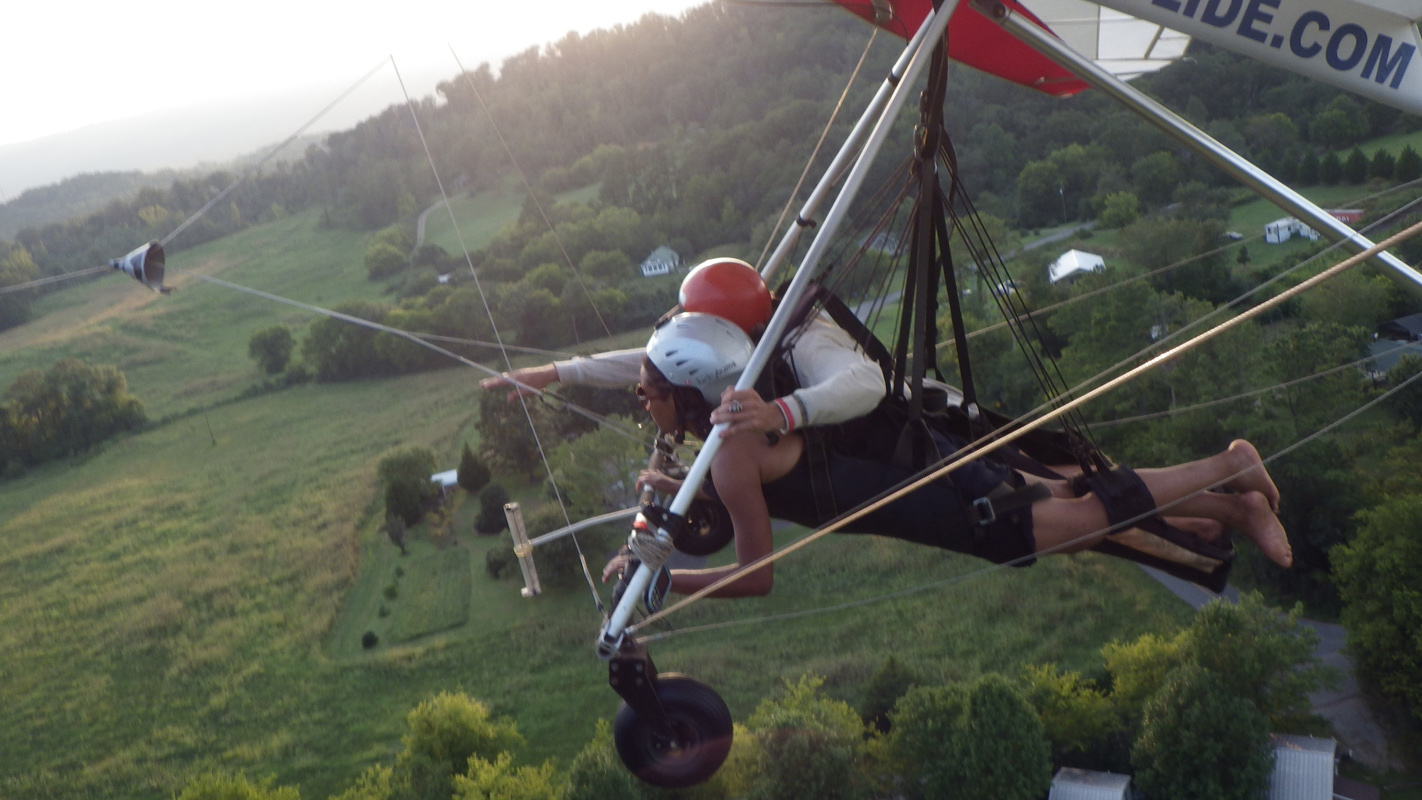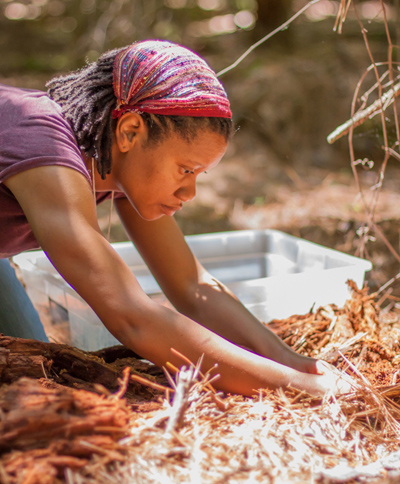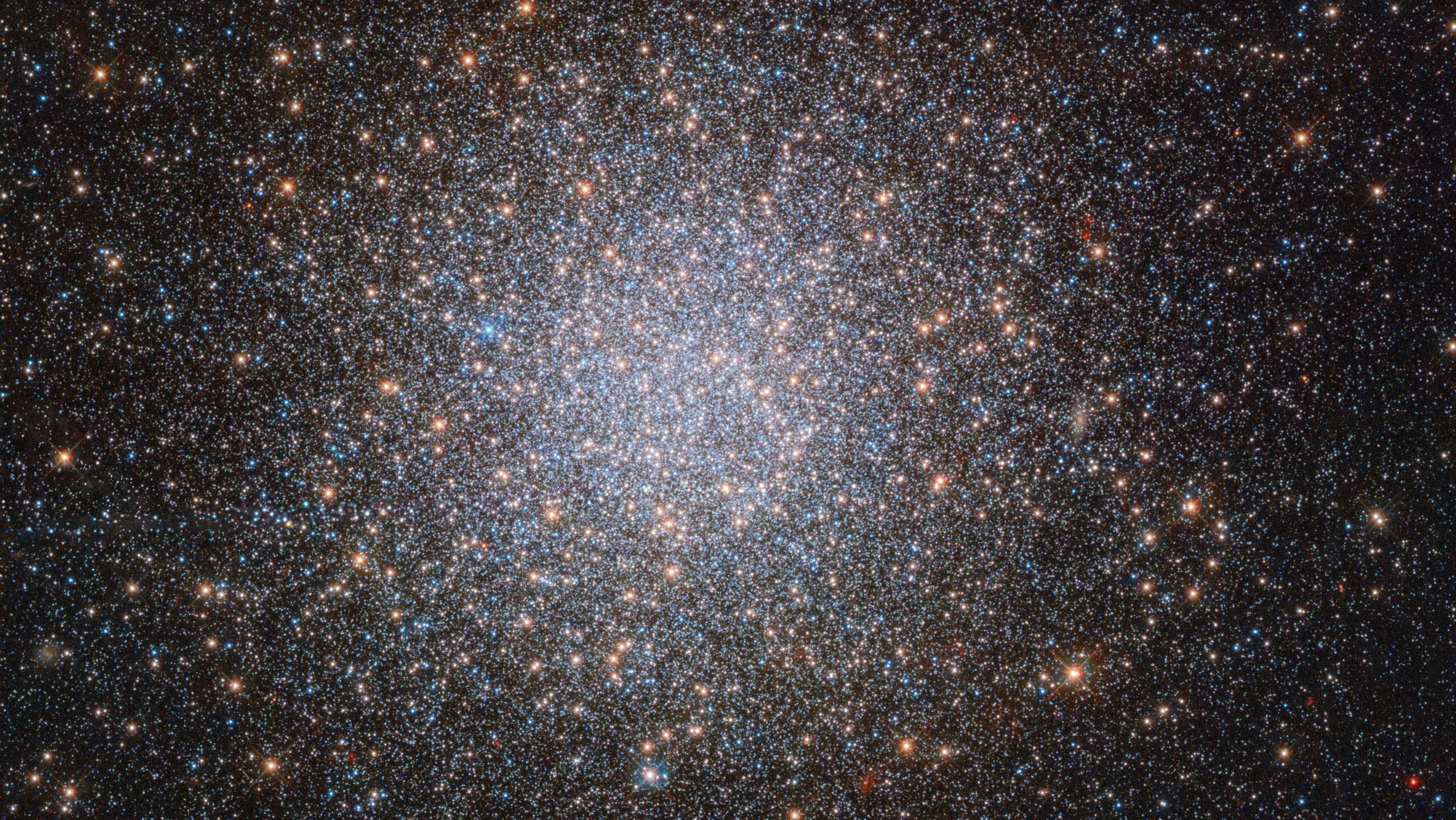This Is What Science Looks Like at NC State: De Anna Beasley

Editor’s note: This post was written by De Anna Beasley, a postdoctoral researcher at NC State. The post is an entry in an ongoing series that we hope will highlight the diversity of researchers in science, technology, engineering and mathematics. The series is inspired by the This Is What A Scientist Looks Like site.
My name is De Anna Beasley. I’m a postdoctoral research scholar with Rob Dunn in the Biological Sciences Department at NC State. As an insect ecologist, I am broadly interested in studying the effects of environmental stress on insect development and function.
My research has ranged from studying the impacts of radiation on wing asymmetry in grasshoppers (as part of the Chernobyl Research Initiative at the University of South Carolina) to habitat degradation on cicada egg-laying site selection.

My current focus at NC State is on understanding how immunity and host-microbial interactions in social populations, such as ants, respond to diet and temperature changes. This new direction has led me into exciting research and collaborations related to microbial ecology, social insects, nutritional ecology and urban ecology!
I never thought I would be a researcher, though I always enjoyed science and asking questions.
Growing up, my plans were to go to medical school and become an OB/GYN. However, I was pretty burned out with the pre-med track by my senior year of college. I took ecology and toxicology courses and really enjoyed them both! I liked the idea of exploring how organisms might respond to changing conditions and how the environment shaped populations.
I didn’t get into insects until after I started graduate school. Even then, appreciation developed slowly. I worked with cockroaches, grasshoppers and cicadas, asking questions related to how well they developed wings or how mounting an immune response impacted other physiological processes such as reproduction. My current project involves working with ants and I think they are pretty impressive and fun to study!
I’m truly excited to be working with the Dunn lab group because it gives me an opportunity to not only work with some amazing researchers and ask cool questions but also participate in public outreach events. I think it’s important for researchers to share their knowledge and enthusiasm for scientific research with the general public with the hope of encouraging young people to ask and pursue science questions on their own.
When I’m not in the lab or field, I enjoy Tai Chi, hang gliding and spending quality time with friends and family. These activities help balance and provide meaning to my life.
- Categories:


